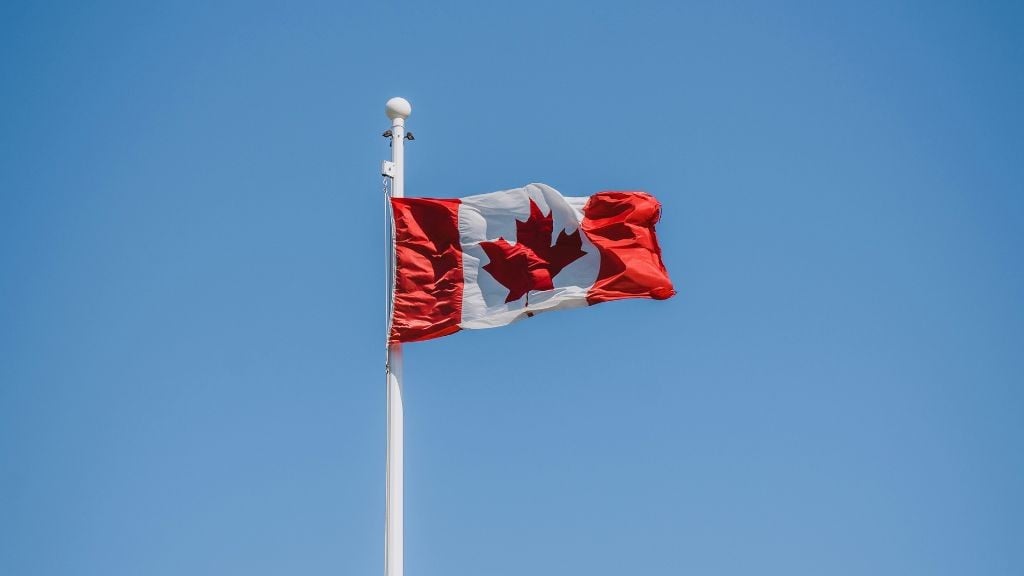The Canadian Circular Textiles Consortium receives federal funding to reduce textile and plastic waste
This follows $3.3 million in funding to support Canadian organizations developing targeted solutions to address plastic pollution

The Canadian Circular Textiles Consortium is a newly established project designed to support policy, the development of standards for circularity, and the improvement of education outreach. By receiving funding from the Government of Canada, the group will connect sector-relevant experts and key players—including manufacturers, retailers, recyclers, and end users from across Canada—to collaborate, share information, and discuss projects related to circular textiles.
As part of this project, Fashion Takes Action will also conduct research on textile waste from industrial, commercial, and institutional facilities, as well as research into fabric scrap textile waste, which will include a collection and sorting pilot project in the Greater Toronto Area. This project aims reduce duplication of resources and foster partnerships among stakeholders who share a vision of a new circular textile economy for Canada.
The textile industry contributes heavily to pollution
Plastics are widely used in the fashion industry, and synthetic textiles like polyester and nylon contribute heavily to waste and pollution.
Due to the prominent use of plastics in fashion and textiles, the waste pollutes communities, rivers, lakes, and oceans due to unsustainable practices and mismanagement of recycling streams. Synthetic textiles also pollute the environment by shredding small plastic pieces, called microfibres, during regular wear and tear and through laundering.
Key facts on Canadian textile pollution
- In 2020, Canadians generated 4.9 million tonnes of plastic waste, and about 1 percent of that entered the environment as pollution.
- Textiles is the fifth-largest category of plastic waste sent to landfills in Canada. Currently, the collection and recycling of textiles is very limited in our country, and approximately 98 percent of plastic textile waste ends up in landfills.
- In addition, the average Canadian and U.S. household releases about 533 million microfibres from laundry into wastewater systems annually. While wastewater treatment plants can capture over 95 percent of microfibres, these two countries collectively release about 878 tonnes—or 3.5 quadrillion microfibers—into our waters after wastewater treatment annually.
- According to Statistics Canada's Physical Flow Account for Plastic Material, around 290 kilotons of synthetic textile products (polyester, nylon, polyvinyl chloride, and/or acrylic) were purchased in Canada in 2020. In that same year, around 280 kilotons were discarded as waste.
- Funding for Advancing a Circular Plastics Economy for Canada has supported initiatives in the textile sector; the industrial, commercial, and institutional sectors; beverage container sectors; the quick-service restaurants sector; upstream solutions, such as reuse, to reduce single-use plastic packaging, and more.
- In 2024, the Government of Canada consulted on a draft roadmap to address plastic waste and pollution from the textile and apparel sector. A What We Heard Report summarizing the main themes that emerged from the consultation process was published on March 3, 2025.
The Government of Canada invests in pollution reduction
The Honourable Nate Erskine-Smith, Minister of Housing, Infrastructure, and Communities and Member of Parliament for Beaches—East York, and Julie Dabrusin, Parliamentary Secretary to the Minister of Environment and Climate Change and Parliamentary Secretary to the Minister of Energy and Natural Resources and Member of Parliament for Toronto—Danforth, re-announced on behalf of the Honourable Steven Guilbeault, Minister of Environment and Climate Change, $662,161 in funding for the Fashion Takes Action's project to mobilize experts, industry, non-profit organizations, and Canadians, through the newly established Canadian Circular Textiles Consortium.
In 2024, the Government of Canada invested over $3.3 million in funding to support Canadian organizations working to develop innovative and targeted solutions to address plastic waste and pollution.
This project is part of the Government of Canada's comprehensive plan to reduce plastic waste and pollution and move toward a circular economy across the plastics lifecycle through a range of complementary actions.
"Fast fashion, clothing, and plastic waste are major challenges—about 98% of plastic textile waste ends up in landfills. Big problems need big solutions, and everyone has a role to play in tackling them. That's why I'm so proud of Fashion Takes Action. What started here in Toronto has grown into a national leader and connector for reducing textile waste and driving circular solutions. Their work aligns with our government's plan to eliminate plastic waste and support industry for a more sustainable and innovative future in Canada," said Julie Dabrusin, Parliamentary Secretary to the Minister of Environment and Climate Change and Parliamentary Secretary to the Minister of Energy and Natural Resources and Member of Parliament for Toronto—Danforth
Kelly Drennan, founding executive director, Fashion Takes Action, added: "We are thrilled to receive support from Environment and Climate Change Canada to advance circular solutions for textile waste. This funding enables us to drive research on institutional and commercial textile waste, while also fostering innovation and collaboration through the Canadian Circular Textiles Consortium. Together, we can create a more sustainable and circular future for fashion."


